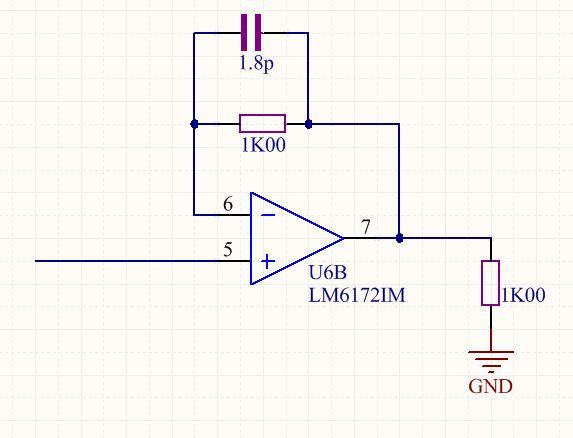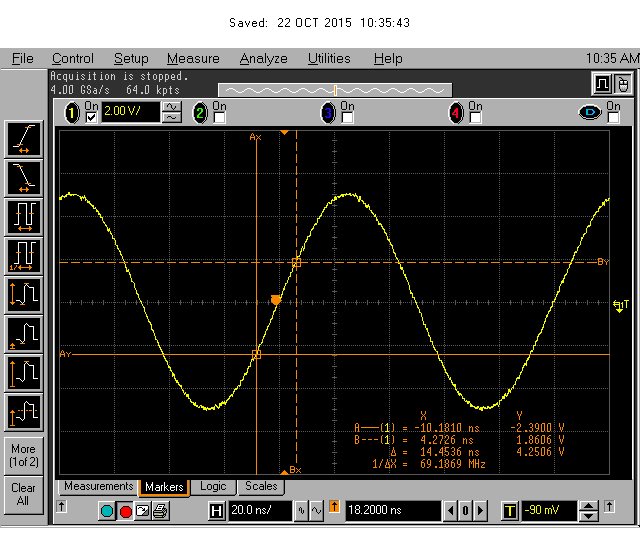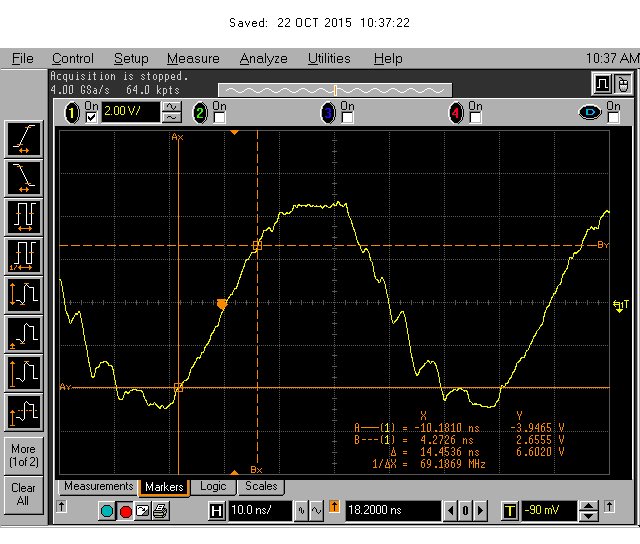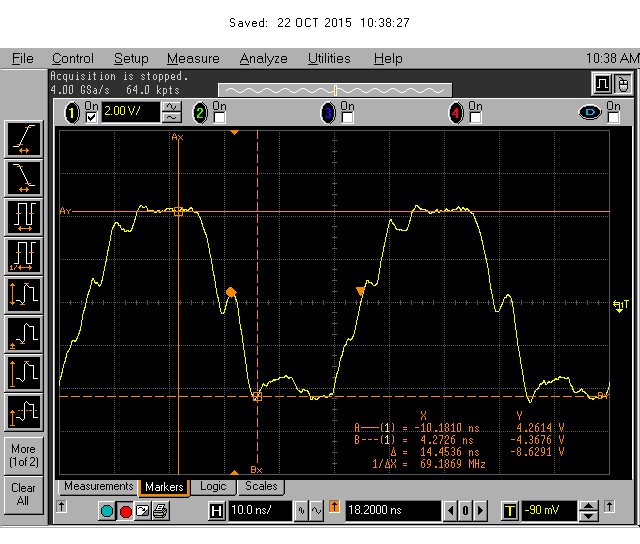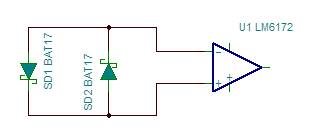Hello,
I have designed a circuit based on the LM6172. Now I am running in some problems.
Abnormal distortion of the signal above 10MHz sine wave input signal and Limited slew rate.(was not the limit of my test equipment)
I have changed the feedback circuit 1Kohm//1.8pF or just 1Kohm or 560Ohm and 0 Ohm and 1kOhm load or no load.
There were some changes but the problem was still there. The input signal was good.
PCB layout: 8mm of 10mil trace on output.
Can you help me and tell me what is going on.
This is my test circuit.
The LM6172 is powered by +15V and -15V
These are the measurement results. Measured with a FetProbe on the output of the LM6172 .
10MHz sinewave signal: Output seems ok:
17MHz sinewave signal: Output seems ????
20MHz sinewave signal: Output seems ????


